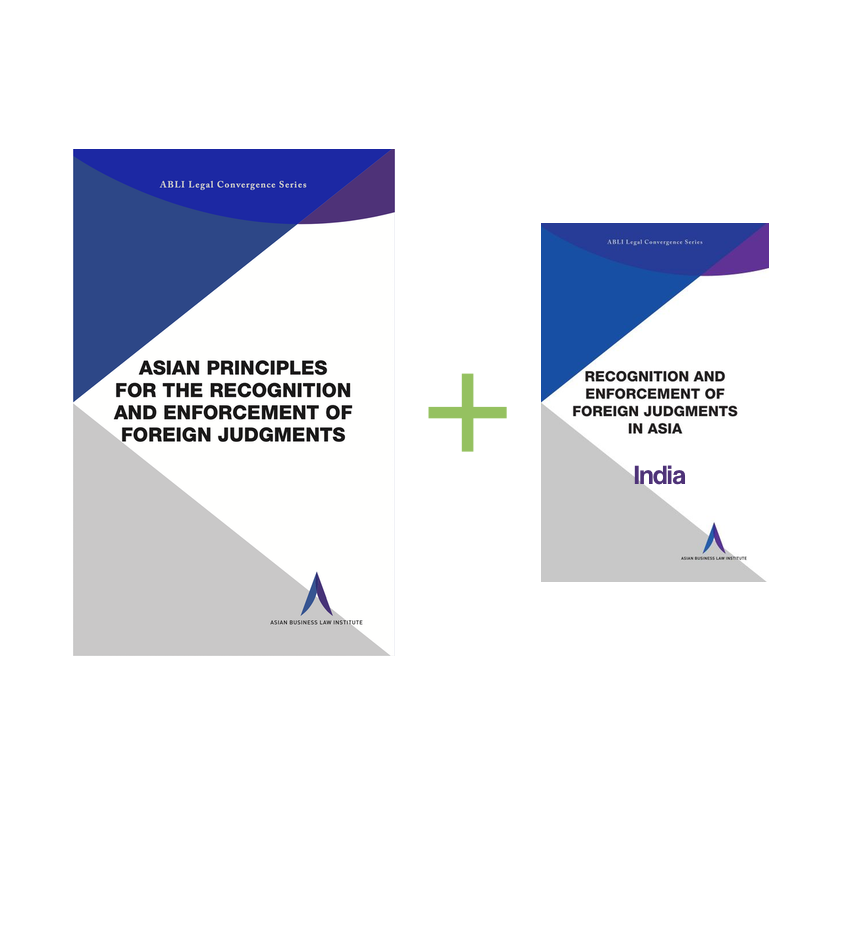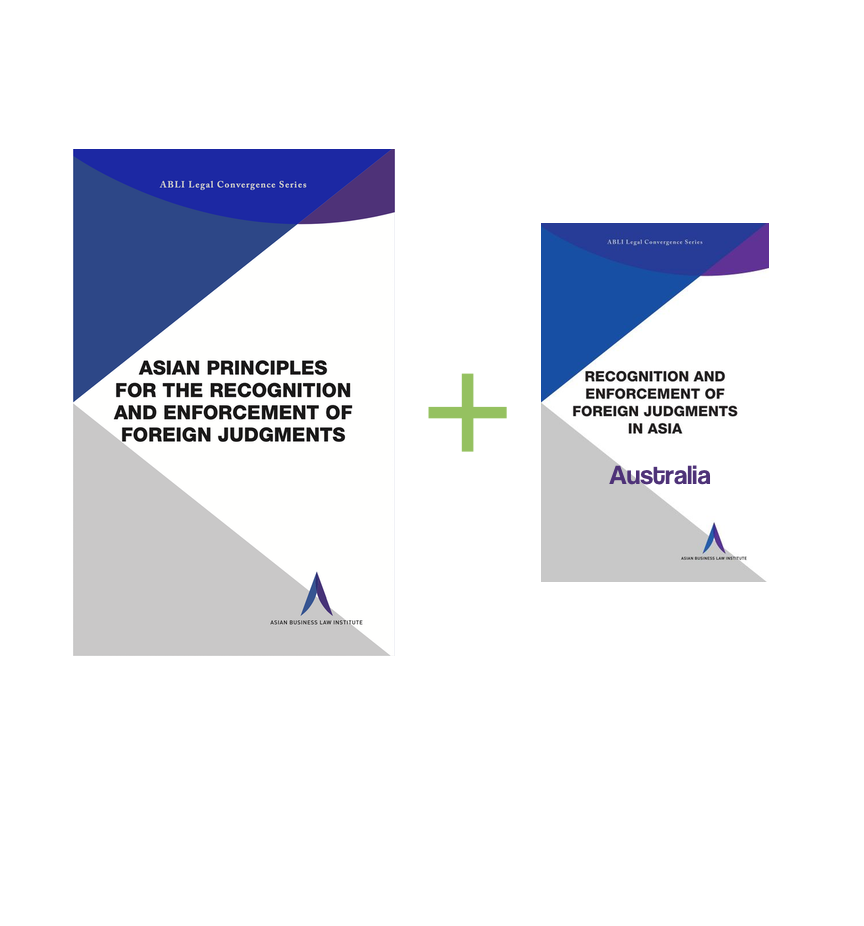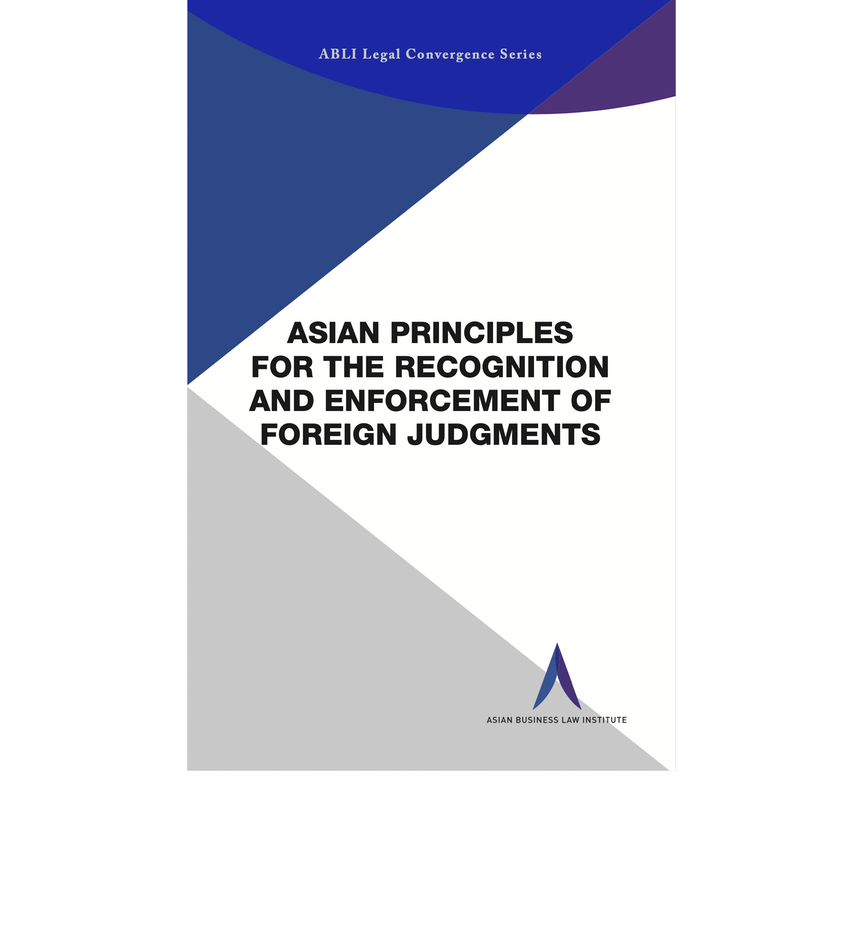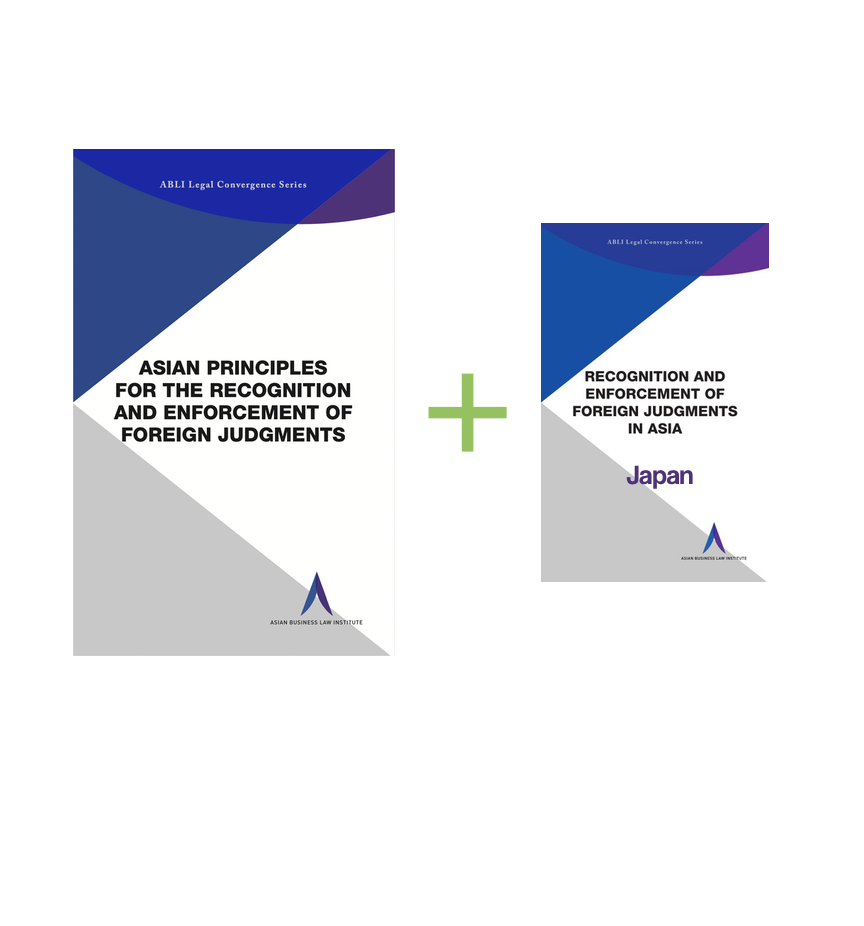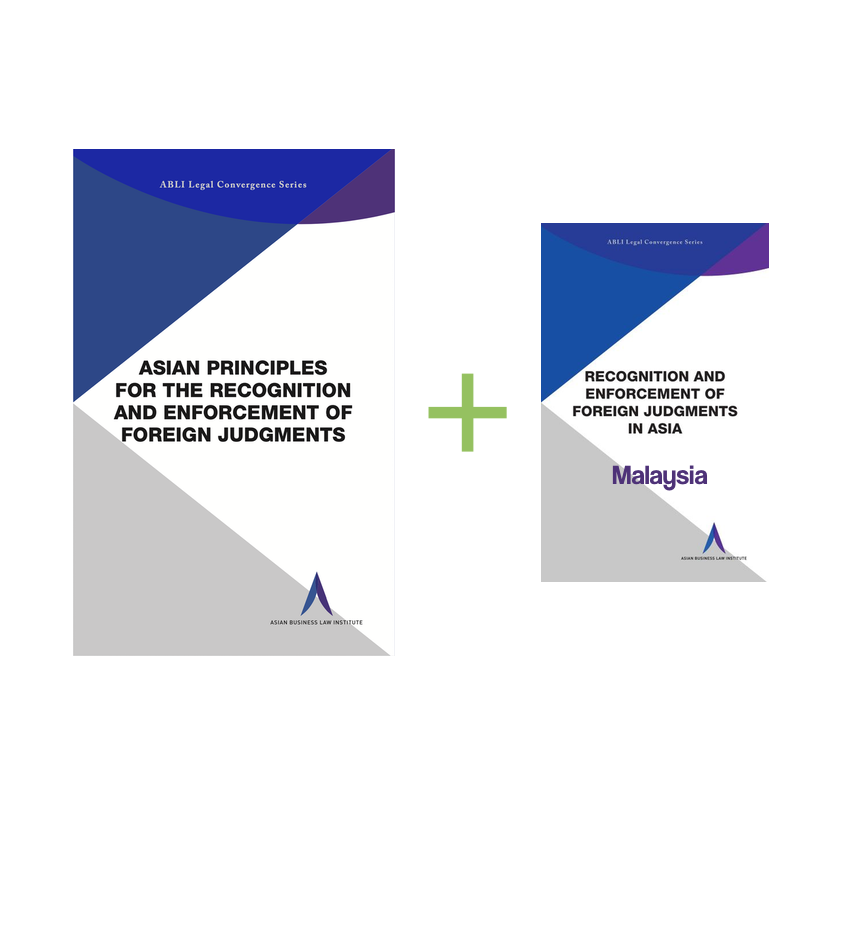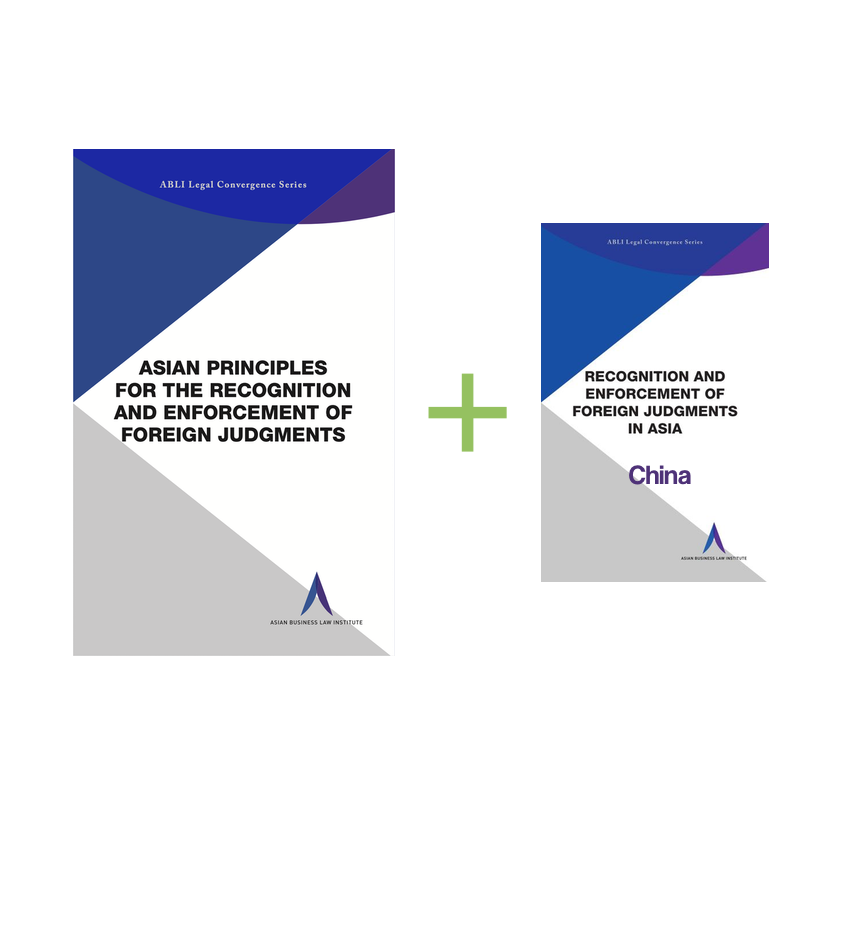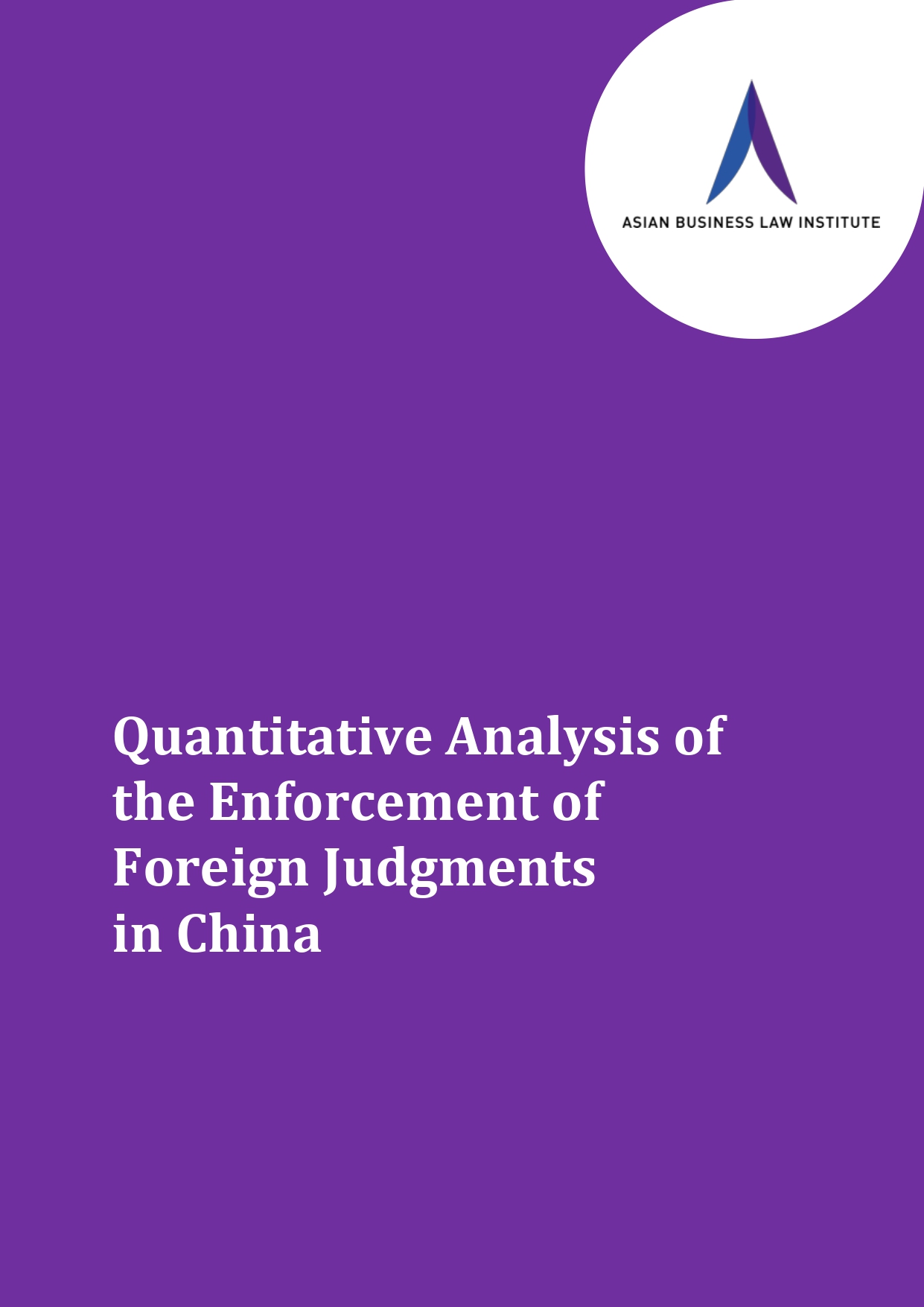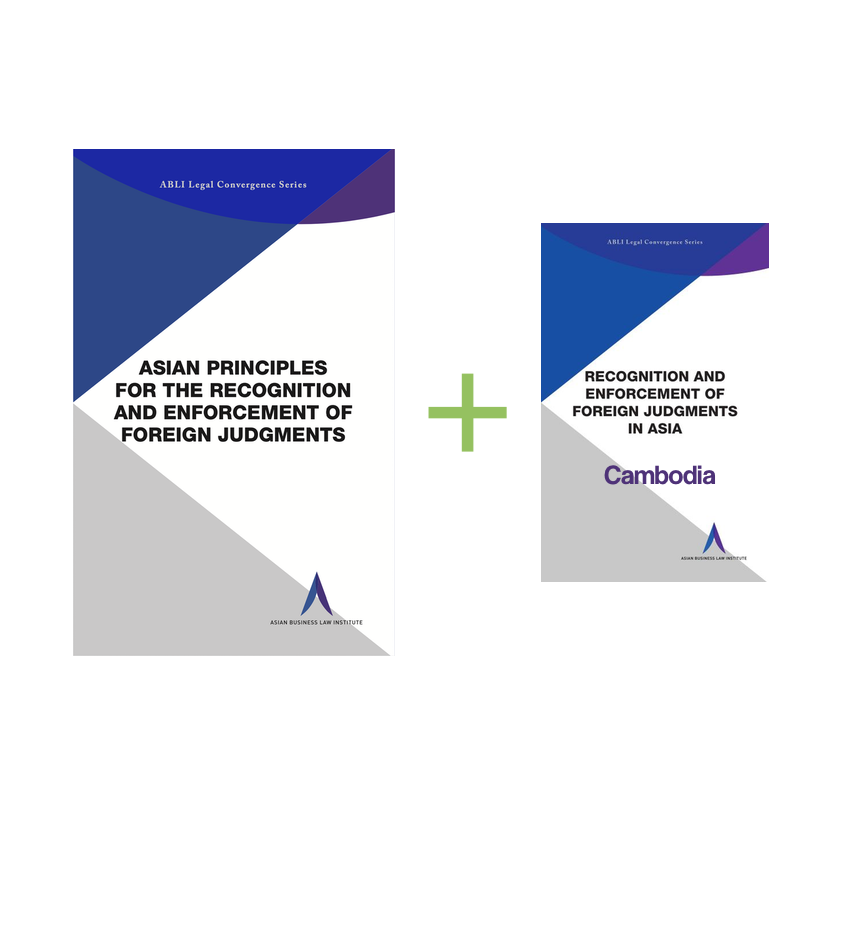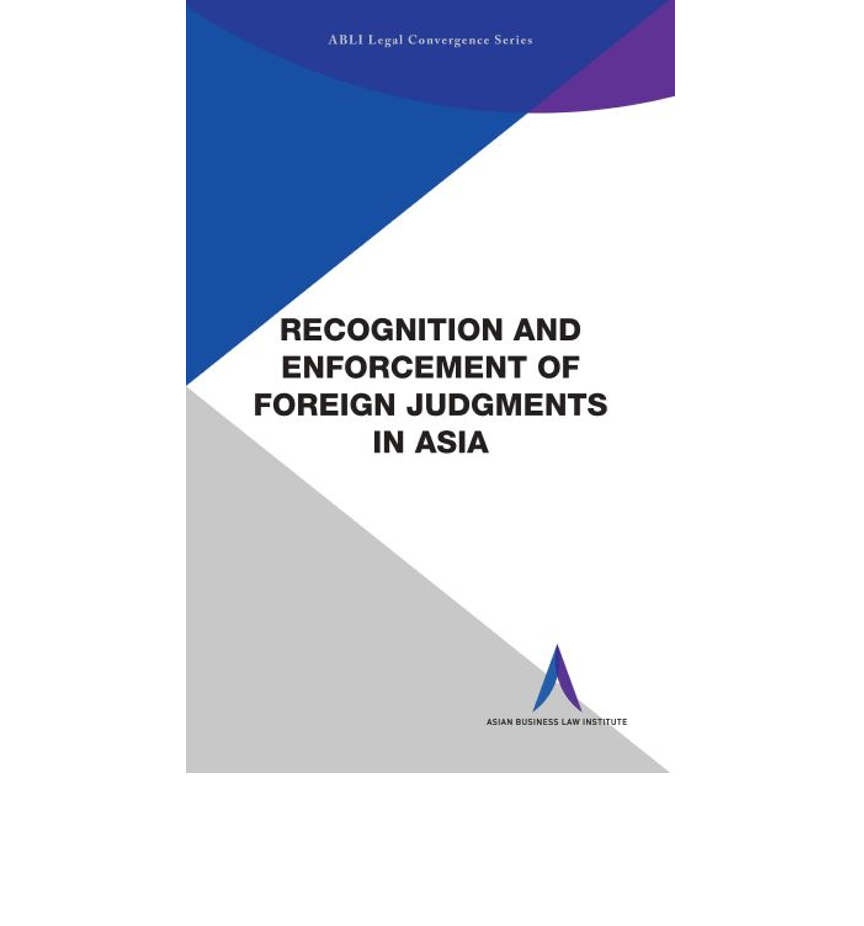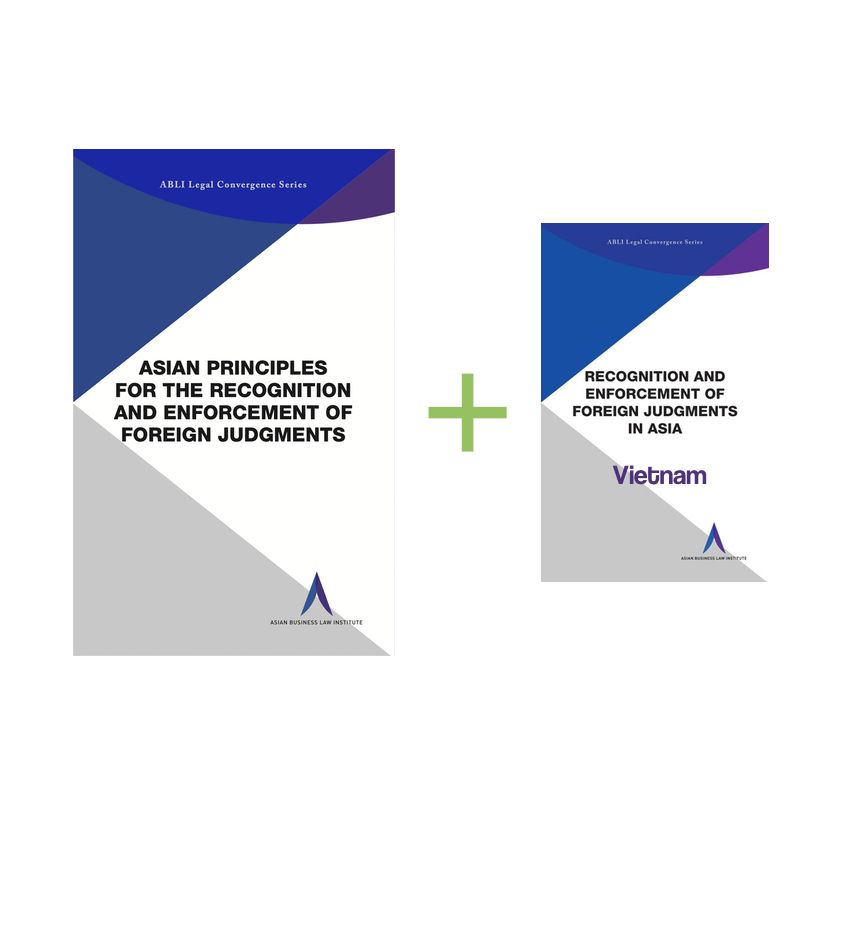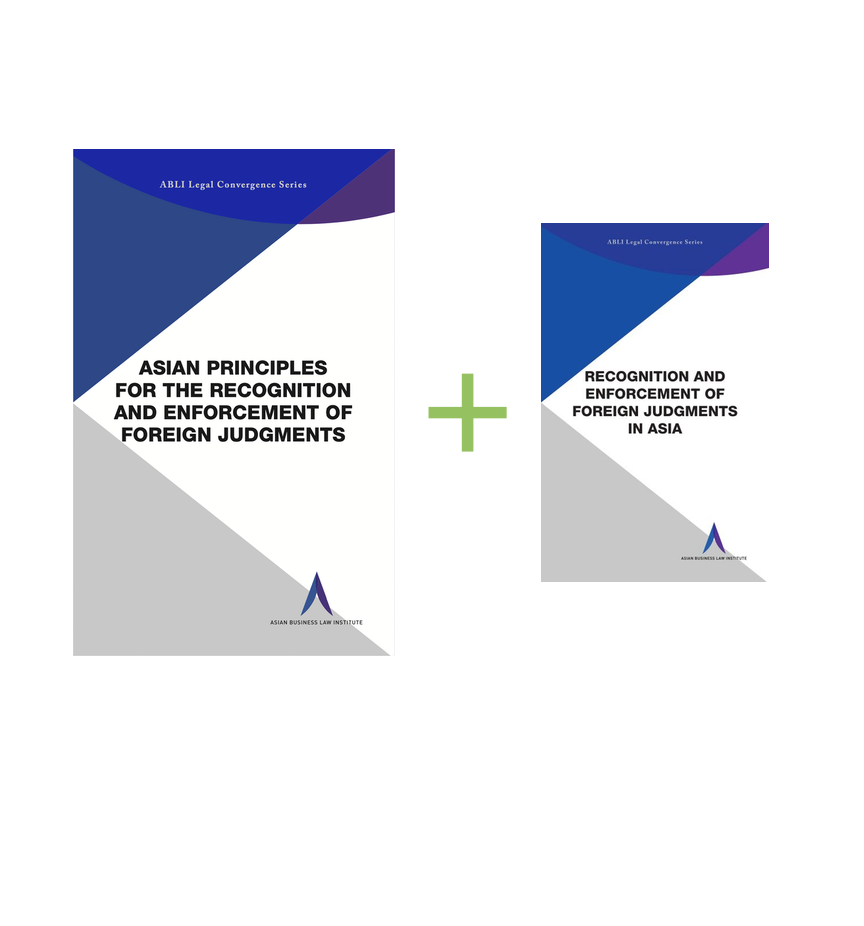
[Bundle] Recognition and Enforcement of Foreign Judgments in Asia + Asian Principles for the Recognition and Enforcement of Foreign Judgments
On Sale
SGD165.00
SGD165.00
Alternatively, you can purchase the Asian Principles for the Recognition and Enforcement of Foreign Judgments separately or a bundle of it with any of the individual chapters in the Recognition and Enforcement of Foreign Judgments in Asia.
View the full collection of our titles here. Contact abli_info@abli.asia for other payment options.
Recognition and Enforcement of Foreign Judgments in Asia
For the first time, the substantive rules for the recognition and enforcement of foreign judgments in each of the ten ASEAN member states and their APAC trade partners (Australia, China, India, Japan and South Korea) have been summarised in the English language.
The rules in each jurisdiction are set out succinctly in individual reports drafted by private international law experts from academia and private practice.
[Publisher's Note] Following its publication in early 2018, laws relating to the recognition and enforcement of foreign judgments in the region have witnessed several developments. For example, amendments to Singapore’s Reciprocal Enforcement of Foreign Judgments Act (REFJA) came into force on 3 October 2019. Further, Singapore's Reciprocal Enforcement of Commonwealth Judgments Act (RECJA) was repealed by Act No 24 of 2019 with effect from a date to be determined by the Government.
Readers are thus advised to read this publication together with the Asian Principles for the Recognition and Enforcement of Foreign Judgments to access the latest provisions.
Asian Principles for the Recognition and Enforcement of Foreign Judgments
Based on the structure of the classic Dicey, Morris and Collins, the Asian Principles for the Recognition and Enforcement of Foreign Judgments comprise 13 general principles for the recognition and enforcement of foreign judgments which are common among the ten ASEAN member states, plus Australia, China, India, Japan and South Korea.
View the full collection of our titles here. Contact abli_info@abli.asia for other payment options.
Recognition and Enforcement of Foreign Judgments in Asia
For the first time, the substantive rules for the recognition and enforcement of foreign judgments in each of the ten ASEAN member states and their APAC trade partners (Australia, China, India, Japan and South Korea) have been summarised in the English language.
The rules in each jurisdiction are set out succinctly in individual reports drafted by private international law experts from academia and private practice.
[Publisher's Note] Following its publication in early 2018, laws relating to the recognition and enforcement of foreign judgments in the region have witnessed several developments. For example, amendments to Singapore’s Reciprocal Enforcement of Foreign Judgments Act (REFJA) came into force on 3 October 2019. Further, Singapore's Reciprocal Enforcement of Commonwealth Judgments Act (RECJA) was repealed by Act No 24 of 2019 with effect from a date to be determined by the Government.
Readers are thus advised to read this publication together with the Asian Principles for the Recognition and Enforcement of Foreign Judgments to access the latest provisions.
Index
Foreword (pp. iii–v)
Andrew Phang JAAustralia (pp. 6–18)
Reporter: Andrew Bell SC (as he then was)Brunei (pp. 19–36)
Reporter: Dr Colin Ong QCCambodia (pp. 37–48)
Reporter: Youdy BunChina (pp. 49–70)
Reporter: Dr Yujun GuoIndia (pp. 70–90)
Reporter: Narinder SinghIndonesia (pp. 91–104)
Reporter: Dr Yu Un OppusungguJapan (pp. 105–116)
Reporter: Toshiyuki KonoLao (pp. 117–122)
Reporters: Xaynari Chanthala and Kongphanh SantivongMalaysia (pp. 123–135)
Reporter: Dr Choong Yeow ChoyMyanmar (pp. 136–145)
Reporter: Minn Naing OoPhilippines (pp. 146–162)
Reporter: Elizabeth Aguiling-PangalanganSingapore (pp. 163–178)
Reporter: Dr Adeline ChongSouth Korea (pp. 179–201)
Reporter: Dr Kwang Hyun SukThailand (pp. 202–210)
Reporter: Dr Poomintr SooksripaisarnkitVietnam (pp. 211–229)
Reporter: Dr Bích Ngọc DuAsian Principles for the Recognition and Enforcement of Foreign Judgments
Based on the structure of the classic Dicey, Morris and Collins, the Asian Principles for the Recognition and Enforcement of Foreign Judgments comprise 13 general principles for the recognition and enforcement of foreign judgments which are common among the ten ASEAN member states, plus Australia, China, India, Japan and South Korea.

